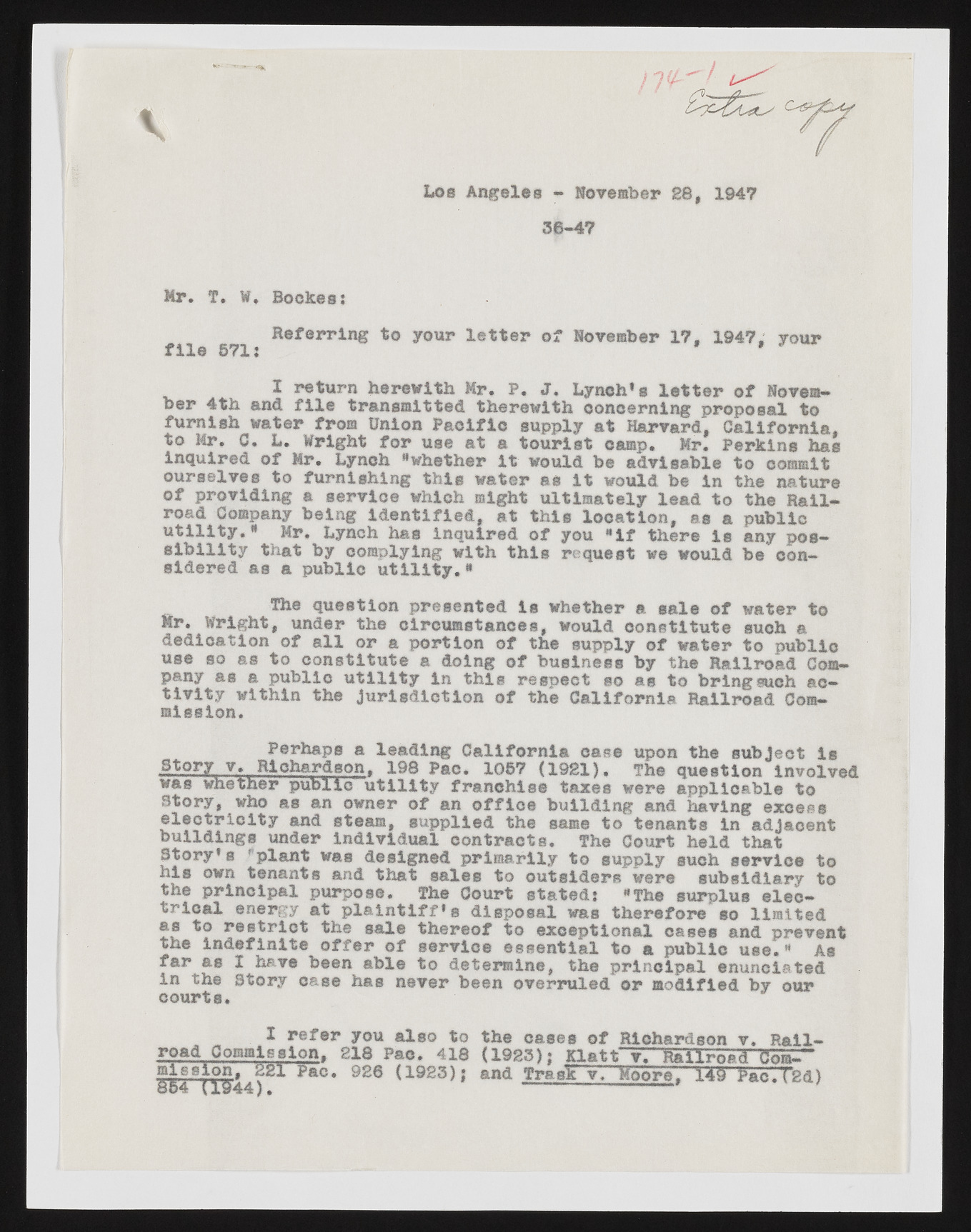Copyright & Fair-use Agreement
UNLV Special Collections provides copies of materials to facilitate private study, scholarship, or research. Material not in the public domain may be used according to fair use of copyrighted materials as defined by copyright law. Please cite us.
Please note that UNLV may not own the copyright to these materials and cannot provide permission to publish or distribute materials when UNLV is not the copyright holder. The user is solely responsible for determining the copyright status of materials and obtaining permission to use material from the copyright holder and for determining whether any permissions relating to any other rights are necessary for the intended use, and for obtaining all required permissions beyond that allowed by fair use.
Read more about our reproduction and use policy.
I agree.Information
Digital ID
Permalink
Details
Member of
More Info
Rights
Digital Provenance
Publisher
Transcription
Los Angeles - November 28, 1947 36-47 Mr. T. W, Bockes: Referring to your letter file 571i of November 17,* 1947,t your I return herewith Mr, P. J. Lynch's letter of November 4th and file transmitted therewith concerning proposal to furnish water from Union Pacific supply at Harvard, California, to Mr. C. L. Wright for use at a tourist camp. Mr. Perkins has inquired of Mr. Lynch "whether it would be advisable to commit ourselves to furnishing this water as it would be In the nature of providing a service which might ultimately lead to the Railroad Company being identified, at this location, ss a public utility." Mr, Lynch has Inquired of you "if there is any possibility that by complying with this request we would be considered as a public utility." The question presented is whether a sale of water to Mr. Wright, under the circumstances, would constitute such a dedication of all or a portion of the supply of water to public use so as to constitute a doing of business by the Railroad Company as a public utility in this respect so as to bring such acmtiisvsiitoyn .within the jurisdiction of the California Railroad ComPerhaps a leading California case upon the subject is Story v. Richardson, 198 Pac. 1067 (1921). The question involved was whether publicutility franchise taxes were applicable to Story, who as an owner of an office building and having excess electricity and steam, supplied the same to tenants in adjacent buildings under Individual contracts. The Court held that Story1s plant was designed primarily to supply such service to his own tenants and that sales to outsiders were subsidiary to the principal purpose. The Court stated: "The surplus electrical energy at plaintiff's disposal was therefore so limited as to restrict the sale thereof to exceptional cases and prevent the indefinite offer of service essential to a public use." As far as I have been able to determine, the principal enunciated in the Story case has never been overruled or modified by our courts. 1 refer you also to road Commission. 218 Pac. 418 mission. 221 Pac. 926 {19231? SF4 71944). the cases of Richardson v. Rail- U923)| Klatt~v7 Railroad Co»r~ and Trask v, Moore. 149 Pac.(2dl

